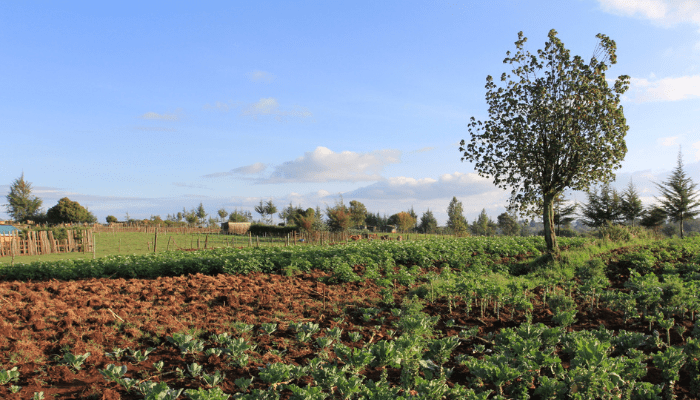Nomboniso Gasa, director of the Land and Accountability Research Center at the University of Cape Town, says that land investments in Africa are complex and creates real tension when investment enters the scene.
She noted this during a discussion series entitled, ‘Advancing Land-Based Investment Governance (ALIGN),’ which drew insights from experts and community leaders across Africa.
A recurring theme throughout the discussion was the gap between law and practice.
The discussion also highlighted that without transparent data, empowering local committees and genuine gender inclusion, traditional authorities will continue to decide the fate of community land and the benefits or burdens of large‑scale investment.
While reforms across the continent increasingly recognises customary rights, implementation remains sketchy. Participants stressed the need for greater capacity building, transparency, and gender inclusion at every level of land governance.
We’re not just dealing with land as a commodity,” said Gasa. “We’re dealing with land as heritage, identity, and power, and that creates real tension when investment enters the scene,” she noted.

According to Gasa, land investments often operate at the intersection of customary authority, community needs, and formal law, creating blurred lines around who truly has the right to make decisions and benefit from land transactions.
She explored how traditional leaders across Africa influence land allocation, negotiate investor interests, and balance community rights.
Gasa highlighted that while traditional leaders play pivotal roles, unchecked authority can erode community trust and fuel land-related conflicts. Effective land governance, therefore, must blend custom, law, and inclusive participation to ensure equitable outcomes for all stakeholders.
In Nigeria, the complexity of land tenure systems causes a challenge to real estate development. There is the increase in conflicts in land ownership laws, inefficient land registration processes, as well as land disputes, which all hinder investment in the sector.
Challenges still occur regardless of the Land Use Act of 1978, which allows a dual system where traditional rulers allocate land under customary law, although the consent of the governor is needed transfer or lease of land.
The Act grants each state governor the ultimate ownership of all lands in the state, and customary rights of occupancy.
However, the system is not without challenges. Apart from land governance issues in Nigeria, the rest of continent faces similar or distinct challenges and can learn best practices on the way forward.
Here are examples from African countries represented during the discussion series on land governance challenges and the way forward.
Ghana: Customary control and gender exclusion
Nana Ama Yirrah, executive director of COLANDEF in Ghana, painted a vivid picture of dual governance in her country. “In Ghana, about 80 percent of land is held under customary tenure,” she noted. “This gives traditional leaders, chiefs and elders, enormous control over land access and transfer.”
Yet the system, she explained, is riddled with challenges such as weak technical capacity among traditional leaders, limited state oversight, and a lack of transparency.
“Acquisition decisions are often made without sufficient consultation or consideration for communal rights, especially women,” she said.
Although the Constitution mandates that chiefs act as custodians of land, in practice many operate as sole decision-makers. “Women, even queen mothers, are routinely excluded from land decision-making processes,” she added, pointing to the persistent gender disparities within the traditional leadership structure.
Ghana’s 2020 Land Act “reinforces rather than dilutes” the authority of chiefs. The statute still places customary leaders as first gatekeepers for grants, yet now obliges every traditional area to create a land secretariat, with state agencies expected to provide technical oversight.
Crucially, the Act codifies six legally recognised interests which give even the weakest rights‑holders a firmer basis for compensation. Better collaboration between secretariats and the Lands Commission could tighten oversight and, if executed well, could open the door to greater gender equality in decision‑making, she said.
Sierra Leone: Reclaiming rights through legal reform
Milton Kamara, a Sierra Leonean and chair of the Landowners Committee in Port Loko District, shared a cautionary tale. “In the past, chiefs often sided with foreign investors, signing away land without consulting landowning families,” he said.
Kamara described how communities mobilised with the help of her legal advocacy group to challenge the status quo. “We petitioned Parliament, marched, and pushed for legal change,” she recalled.
The result was the landmark Customary Land Rights Act, passed in 2023, which reaffirms the rights of local landowners and curbs unchecked chiefdom authority.
“Before this, investors signed leases for as little as $250 per hectare for seven years without our consent or benefit….Now, we have a legal foundation to protect our land and demand accountability,” he noted.
He noted that donor-funded projects help communities form land management committees and enter formal mapping. Also, a new web‑based tool tracks each stage of that process, records boundaries, not investment contracts and has a tedious workflow. He therefore called for shared funding so that locals feel genuine ownership of the exercise.
Liberia: Harmonising law and custom
Mahmoud Solomon, assistant director at the Liberia Land Authority, explained that 70 percent of land in Liberia is also customary, historically excluded from formal markets.
“The 2018 Land Rights Act marked a turning point… For the first time, customary communities are recognised as landowners, with the right to formalise and register their land,” said Solomon.
However, this shift brought conflicts between overlapping mandates of government agencies like the Forestry Authority and the Ministry of Mines.
“We’ve had to mediate disputes where different entities issued conflicting concessions,” he explained, highlighting the role of dispute resolution and the importance of a clear legal hierarchy.
Kenya: The challenge of community land registration
Bernard Opar, deputy director at the National Land Commission in Kenya, outlined the ongoing challenges of registering community land, which comprises roughly 82 percent of Kenya’s landmass.
Under Kenya’s 2010 Constitution, land is classified as public, private, or community land. “While the Commission manages public land, we also oversee community land rights,” Opar said. Yet many pastoralist and rural communities remain unregistered.
“The trusteeship of unregistered land lies with county governments, but without formal recognition, these lands are vulnerable to exploitation especially in areas rich in minerals or arable soil,” he added.
Kenya’s devolved governance system adds layers of complexity. “Land remains central to identity, politics, and livelihoods. Without a strong legal backbone and effective community engagement, land investments can quickly turn into flashpoints.”
Zambia: Traditional leaders in the web of tradition and development
Chief Mumba, a senior traditional leader from Zambia, emphasised the delicate balance between tradition and development. He pointed to growing tensions between customary leaders, state agencies, and communities as investments in agriculture and infrastructure accelerate.
“Accountability doesn’t end with law reforms,” said Yirrah. “It begins with real inclusion of women, of youth, of marginalised community voices in every decision that affects their land.
Sources: businessday.ng



